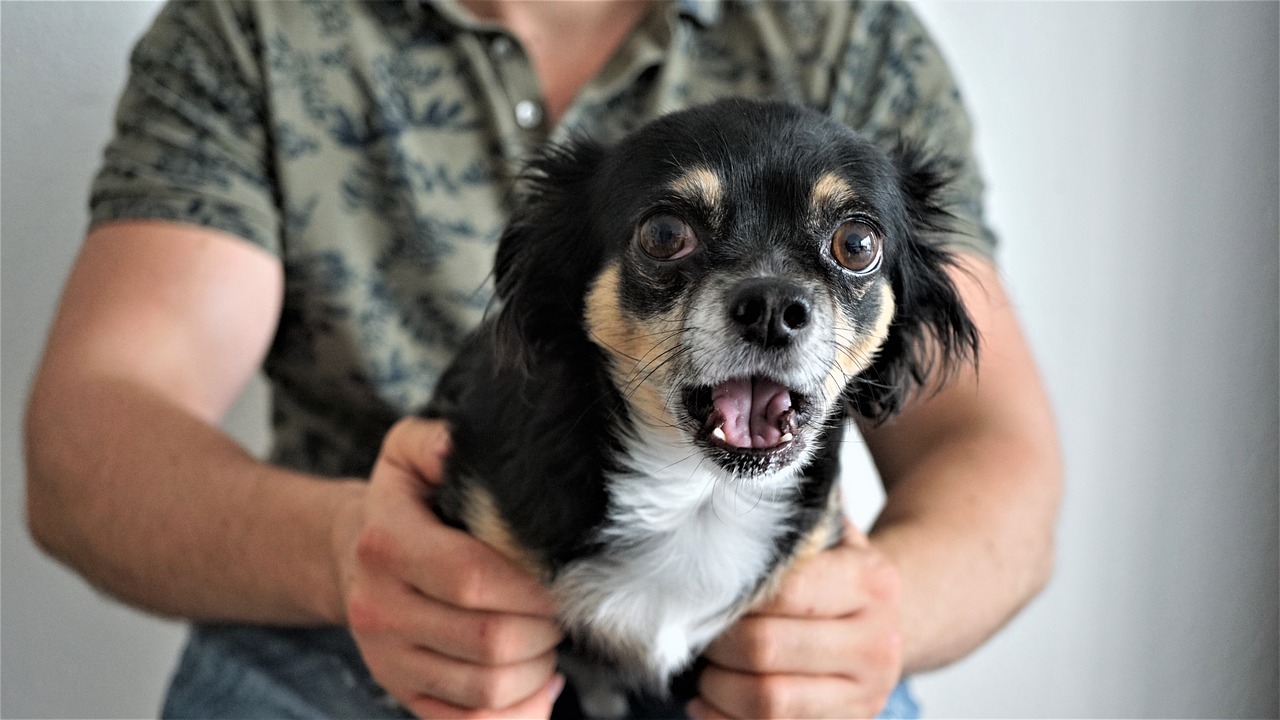Trazodone for Dogs: What You Need to Know
Trazodone, also known by its brand names Desyrel and Oleptro, is primarily used as an antidepressant medication for humans. However, it has also found its way into veterinary medicine as a treatment for various behavioral issues in dogs, such as separation anxiety, aggression, barking, and excessive licking. Additionally, some people use Trazodone as a sleep aid or to manage stress. If your furry friend experiences distress during vet visits or when left alone, your veterinarian may recommend Trazodone to help manage their behavior.
Trazodone is a medication that helps stabilize a person's mood by regulating the levels of serotonin, a chemical messenger in the brain. However, when it comes to using Trazodone in dogs, it's important to note that it's considered "extra-label" and may have side effects. It's crucial to follow your veterinarian's advice, which may differ from what's on the label, to ensure the safety and well-being of your furry friend.
Trazodone, a medication originally developed for humans, has found a new use in veterinary medicine. Trazodone is a safe and well-tolerated option for calming dogs and cats in certain situations, such as after surgery. In cases where a dog needs to remain still and calm, such as after orthopedic surgery, Trazodone can be administered by a veterinarian to help keep the animal relaxed.
Trazodone is a medication that can be used for short-term stress relief in dogs, particularly for events that may cause anxiety such as visits to the vet or groomer, car rides, or airplane trips. For dogs that become extremely distressed during vet visits and may even start urinating or defecating in the examination room, Trazodone can be given on an as-needed basis. It's important to note that the dosage may need to be adjusted or repeated depending on the level of stress the dog is experiencing.
Trazodone is a medication that veterinarians may prescribe for dogs with behavioral disorders or phobias of certain events, such as thunderstorms or fireworks. It can also be used for daily use to provide relief for dogs who experience extreme anxiety, which can lead to destructive behavior or self-harm. However, it's important to note that Trazodone does not have an immediate effect and must be built up to a level where it can provide the desired behavioral changes without causing unwanted side effects like drowsiness.
Trazodone is a medication that can be used to treat both chronic behavioral disorders and short-term stress relief in dogs. However, it's important to note that the dosage and timing of administration may differ depending on the purpose. For chronic conditions, it may take a few weeks to see improvement in your dog's behavior. On the other hand, for short-term stress relief, Trazodone should be given 1-2 hours before the required time of sedation, and your dog's behavior will return to normal once the effects wear off.
Trazodone Side Effects in Dogs
Trazodone is a medication commonly prescribed to dogs for anxiety and sleep disorders. While it can cause some gastrointestinal issues such as upset stomach, vomiting, and diarrhea, these side effects are common with many medications. The most common side effect of Trazodone is drowsiness, which can cause your dog to appear slightly intoxicated and walk with a stumbling gait. It's important to monitor your dog and ensure they don't hurt themselves by misjudging their steps while sitting up high. Overall, Trazodone can be an effective treatment for dogs, but it's important to discuss any potential side effects with your veterinarian.
While Trazodone is generally considered safe for dogs, it's important to be aware of potential side effects. In rare cases, Trazodone can cause disinhibition in dogs, which can lead to increased aggression rather than the desired calming effect. This is especially important to note for dogs with pre-existing aggressive tendencies. It's always best to exercise caution and consult with a veterinarian before administering any medication to your furry friend.
Trazodone Dosage for Dogs
Trazodone is a medication commonly prescribed by veterinarians to treat anxiety and behavioral issues in dogs. It comes in tablet form in various strengths, including 50, 100, 150, and 300 milligrams. Depending on the state, a written prescription may be required, but in most cases, the veterinarian can call it in to a local pharmacy. It's important for the veterinarian to consider the dog's medical history and any potential drug interactions when determining the appropriate dosage.
Trazodone is a medication commonly used to treat chronic behavioral issues in dogs, such as separation anxiety. The recommended dosage is typically one to three milligrams per pound of body weight, but this may need to be adjusted depending on the situation. For example, if your dog has a fear of thunderstorms, you may choose to give a lower dose on a daily basis during the summer months, and then increase the dosage on nights when severe storms are predicted. It's important to work with your veterinarian to determine the appropriate dosage and usage for your dog's specific needs.
Trazodone is a medication that can be given to dogs on an empty stomach, but it's recommended to give it with a small amount of food or a treat if your dog is about to go on a car ride or flight. It's important to ensure that your pet is fully awake during travel to prevent motion sickness and ensure they are in a proper position in case they need to vomit.
Combining Trazadone and Gabapentin for Canine Anxiety:
What you need to know
In cases where a single medication is not enough to alleviate anxiety in veterinary patients, a combination of drugs may be necessary. Trazadone and Gabapentin are two medications that can be used together to provide more effective treatment. By combining these drugs, veterinarians can provide their patients with a more comprehensive treatment plan that addresses their specific needs.
Trazodone and gabapentin are both medications commonly used in veterinary medicine to manage anxiety and behavioral issues in dogs and cats. Gabapentin, traditionally used as an anticonvulsant and for neuropathic pain, has also been found to be effective in treating social anxiety and panic disorder in humans. In recent years, veterinary behaviorists have started using gabapentin as an adjunctive therapy for anxiety in pets, particularly in the treatment of generalized anxiety, impulsivity, phobias, panic disorders, and compulsive disorders in dogs.
Trazodone is a medication commonly used in veterinary medicine to treat conditions such as anxiety and insomnia in dogs. It works by increasing the levels of serotonin in the brain, which helps to regulate mood and promote relaxation. In addition to Trazodone, Gabapentin is another medication that has been adapted for use in veterinary medicine. It is often used as a secondary treatment for chronic nerve pain and seizures, and can be a safer alternative to non-steroidal anti-inflammatory drugs for dogs with comorbidities such as kidney, liver, or heart disease.
Pet owners should avoid giving their dogs Gabapentin oral solution prescribed for humans, as it contains xylitol, which is toxic to dogs.
If your dog experiences extreme stress during vet or grooming visits, or has a fear of loud noises, you can discuss with your veterinarian whether a mild sedative would be beneficial. Trazodone is one medication that can be used alone or in combination with other drugs like Gabapentin to help make the experience less stressful for your dog, you, and your veterinarian.
Gabapentin Side Effects in Dogs
While side effects are usually mild and temporary, it's important to educate clients about possible adverse effects and to contact a veterinarian immediately with any concerns. If adverse effects occur, the dosage can be decreased or the medication can be discontinued gradually to minimize withdrawal signs. Dose adjustments can be made every one or two weeks, and premedication database testing should be performed to monitor hepatic and renal function. There is no need to withdraw these medications before anesthesia, but premedication sedation should be reduced to minimize interactions.
Gabapentin Dosage for Dogs
The dosage for gabapentin can vary, but it is typically given at a rate of 5-30 mg/kg up to three times a day. However, some veterinarians may prescribe a higher dosage of 10-40 mg/kg up to three times a day. Gabapentin can also be used as needed to help calm dogs before a stressful event, such as a visit to the vet, at a dosage of 30-60 mg/kg one to two hours before the event.
Like us on https://www.facebook.com/LegendAcres
Follow us on Instagram instagram.com/legendacres/
Legend Acres
Training, Lessons
Kristi May MS, CVPM, LVMT, BSA, AHT, ABCDT, CHA Cert Riding Lesson Instructor, CHA
EFM, Cert Equine Nutrition, Cert Animal Cognitive Behavior, AKC Evaluator, AKC Fit Instructor, Pet Partners Therapy Evaluator and Instructor, PPG Professional Canine Instructor
Middle/West, TN
Surprise, AZ
(931) 516-3064
www.Legend-Acres.com
Want to do more with your dogs? Join Legend Acres Active Dog Lifestyle for training, enrichment, monthly group walks, play days and more!!! https://www.facebook.com/groups/2181727312095888/
One Less Errand to Run!!! Save and Use Legend Acres Stores Check it out Today and have your Dog Food Delivered to your door for less with Free Shipping! https://www.legend-acres.com/links




